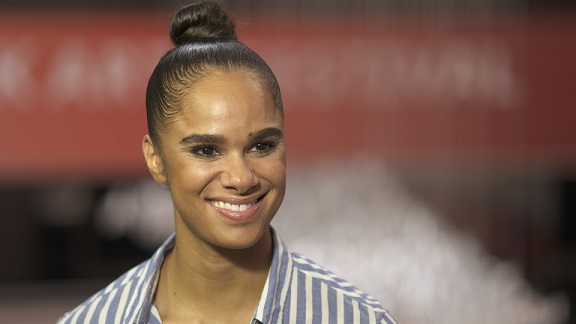 In 2015, Misty Copeland made history by becoming the first African-American female principal dancer with the prestigious American Ballet Theatre, one of the top institutions for ballet in the United States.
In 2015, Misty Copeland made history by becoming the first African-American female principal dancer with the prestigious American Ballet Theatre, one of the top institutions for ballet in the United States.
Since then, the self-described “unlikely ballerina” has dominated the ballet scene, both on and off stage. Copeland has written books, fronted big brands and inspired countless young boys and girls both in and outside the world of ballet.
This month, CNN’s Anna Coren sits down with Copeland as she visits Hong Kong for the very first time performing in American Ballet Theatre’s production of “Whipped Cream”. She talks about her beginnings and incredible rise in the world of ballet, as well as fulfilling her lifelong dream, plus how she is changing the face of her beloved craft.
Highlights from the 30-minute episode:
On being the first female African-American principal dancer for the American Ballet Theatre:
“I feel like when people say, like how do you handle this pressure and the weight of being the first? And to me it was like, so much more than me. And what I represent and embody was this opportunity for a future, for so many young, minority children, that were never told they could be a ballerina. And I think also for a lot of past generations, I’ve had so many older women come to me and say, if only I had someone like you to look up to, I would’ve continued to pursue a career in classical dance.”
On whether she’s experienced racism in her career:
“Yes, absolutely. And you know, people ask me like “you’ve gotten to this point and you’re a principal dancer. Do you still experience it?” And I say “yes.” Just because President Obama became the first black president, doesn’t mean that racism goes away and he’s never going to experience it again. You know, it’s something that’s going to take a long time to, I think, heal from in America. But to this day, there are still people that don’t think I belong. That don’t think I’m right. That don’t think I fit in.”
On the biggest misconception of professional ballerinas:
“It’s the eating part. And you know, I think with anything, with any sport, with any career, there’s going be some type of stereotype. And so, I can understand why someone would think that dancers are lean and they just assume like, maybe cause a couple of dancers here and there, that have been known figures had eating disorders, doesn’t mean we all do. You won’t have a lasting career if you’re not feeding and fueling your body. We’re athletes and we’re training and rehearsing up to 8 hours a day. And it’s very physical.”
On why she’s the “unlikely ballerina”:
“I was just kind of thrust into it when I was 13 years old. After experiencing, living more so than I think the typical 13 year old would have. Seeing a lot things I shouldn’t have seen when it came to physical abuse, and mental abuse, emotional abuse. Moving from home to home, sometimes not having a home. That’s not really your typical background of someone who enters into a world that’s very expensive and very white.”
